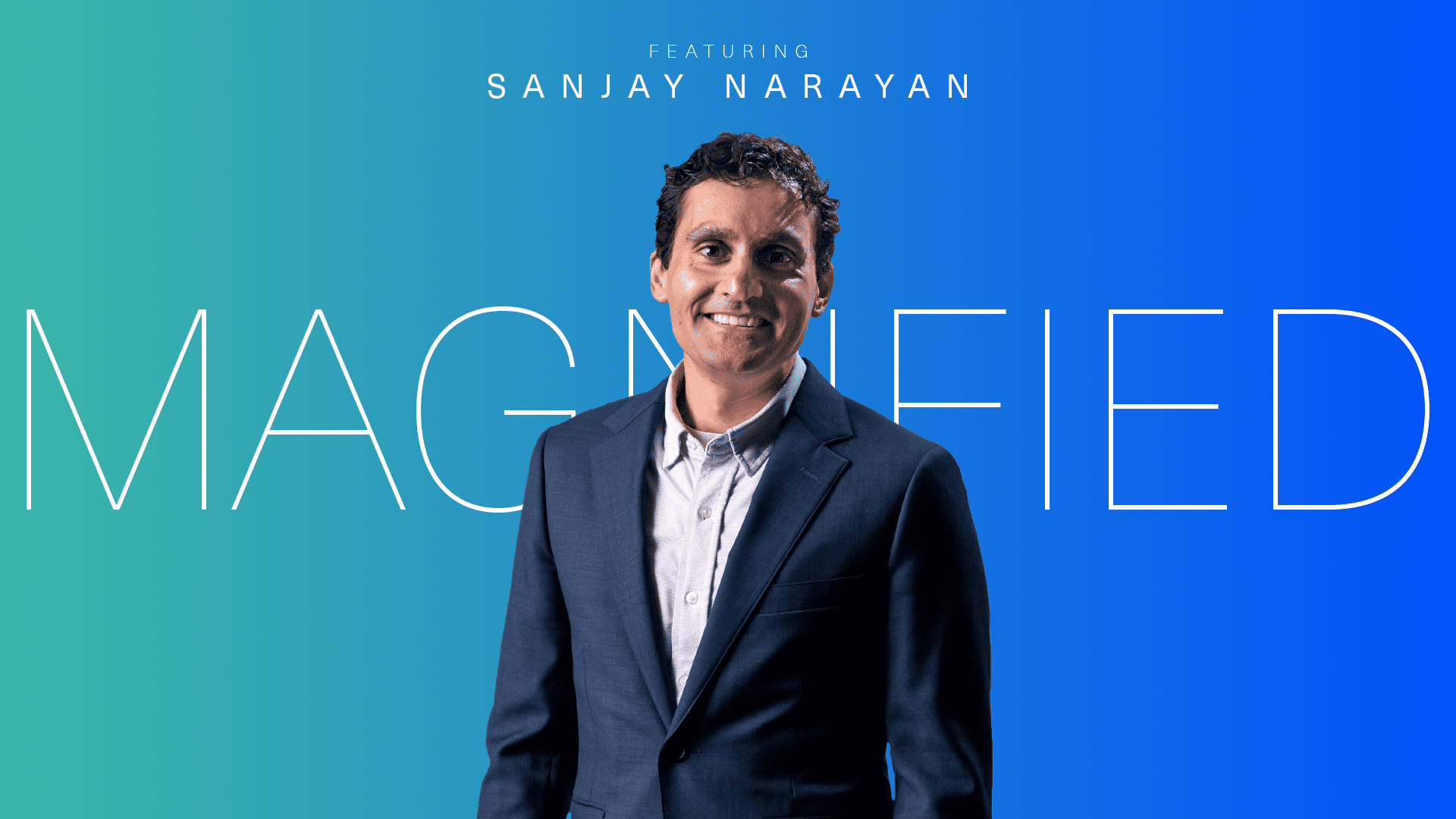Magnified featuring Roopal Thakkar
Our global head of regulatory affairs is on a quest to challenge the status quo and quickly bring therapies and solutions to people who need them.
In the "Magnified" series, we take a closer look at the life experiences & career journeys that have shaped AbbVie's leaders. Meet Roopal Thakkar, AbbVie's vice president of regulatory affairs and R&D quality assurance. From his time as a practicing physician to his experience overseeing global regulatory submissions for therapies and devices, Roopal lives by four tenets: empathy, listening, humility and self-awareness.
Q: What inspired you to pursue a career in science and medicine?
I had an interest in medicine from a young age, partly driven by many relatives being in medicine but primarily by my mother's experience when I was quite young. She had a skin disorder that was challenging to diagnose years ago, and the effects were quite severe. Ultimately, she was diagnosed with pemphigus vulgaris, a rare autoimmune disease that required hospitalization and high-dose corticosteroids. Watching her difficult journey made me question why there weren't better treatment options.
After completing medical school and residency, I went on to fellowship training focusing on hypertension and kidney disease, and during this time, I was involved with many industry-sponsored studies. I gained experience as a sub-investigator and clinical coordinator, reviewing research protocols, investigator brochures, presenting to institutional review boards (IRBs), and collecting study data.
Q: Why did you decide to come to Abbott, then ultimately, AbbVie?
An ad from Abbott in the New England Journal of Medicine for their internal physician development program piqued my interest. At the time, Abbott was the only pharma company I knew of with a formal rotation program that transitioned people into the industry, teaching them core aspects. The idea of reaching patients on a large scale appealed to me, as that was harder to do as a physician, so, in 2003, when a position became available, I joined. In the nearly 20 years that followed, I've held several positions in clinical development, including group project director for immunology, and now, I lead global regulatory affairs and R&D quality assurance.
Q: Discuss your organization and role in leading Regulatory Affairs and R&D Quality Assurance. What are your team's focus areas and goals?
My team focuses on patients and their needs. A major goal is to bring new medicines to patients as quickly as possible. We work with colleagues across the company to design and develop optimized global regulatory and quality strategies to gain approvals for our products. We do this by first listening and understanding the perspectives of various functions, then taking it all in and acting.
In leading this group, my role is to build, inspire, and motivate the team, giving them the resources they need to succeed. My leadership team and I prioritize focusing on individual career goals, identifying needs for growth and development, and making them happen. It's critical to create a culture where people love what they do.
Q: How does your experience as a physician continue to shape your perspective today?
Keeping patients at the core of what we do isn't just a phrase for us; it shapes our professional path. Patients have lives to live, friends and family to interact with and care for, so they don't have time for illness. I believe our role in health care should be to help patients live the best lives possible without thinking and worrying about their disease state. And to do that, we cannot accept the status quo; we need to go beyond what's considered good enough. This is why I constantly ask how we can go faster, what resources are needed, and how we can give the patient the best possible outcome as quickly as possible. My leadership style is proactive, always looking for ways to be more efficient and increase the probability of success.
When you see so many patients and families in need, it's clear they want relief as fast as possible. That's what I wanted for my mother. I wanted her out of the hospital and back home and things back to normal.
Q: How would you describe your leadership style?
I focus on empathy, self-awareness and humility. We work in a highly regulated space, so it's important to balance that with a humanistic approach.
Empathy is essential to fully understand what a patient feels and what they can be going through. The concept of the patient journey in how disease manifests is critical for all of us to learn. The second aspect of empathy is around colleagues and understanding the pressures they may face and how to support them.
Throughout my career, effective listening has been essential. A physician talking over a patient can lead to a missed diagnosis. Coming up with the best treatment option requires genuinely understanding the patient's experience.
Self-awareness goes into the concept of emotional intelligence. For example, ask yourself questions like, how good of a listener are you? How well do you assimilate what you're hearing? How do you let others know that you've heard them? How are you perceived as a leader, and do you request feedback often?
Humility comes from knowing your opinion is one of several and integrating the needs of others into a path forward. I have an open-door policy and try to remain flexible because, in medicine, anything can happen at any time. So, we have to be in a constant state of readiness.
Media inquiries:
[email protected]


